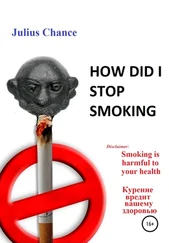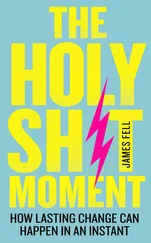By the time I was 15 I had discovered girls. I knew they had existed before, obviously – I lived with two of them. But I mean I became more interested in them than I was in my mates. However, it should be made clear that I wasn’t exactly a lothario when it came to girls, and I had all the awkwardness that comes with being a teenage boy. These ranged from thinking that the best way of attracting the attention of a girl you fancied was by throwing something at her head (Paula); to being so unworldly wise that the first time a girl French-kissed me I pulled away, spat on the floor and shouted, ‘What did you stick your tongue down my mouth for? You dirty cow!’ (Jane).
This growing interest coincided with a failed car-stealing incident. It was not an unusual pastime for teenage boys on the estate to steal motor scooters from gardens. They were easy to jump-start, and you could have a few hours of fun before the petrol ran out, someone crashed or you just left it somewhere – usually always stupidly close to home, to save the walk.
Somehow, we had never been caught doing this. So, emboldened, we decided one afternoon when at my friend Mark’s house that he should steal his dad’s car. This was a big, golden-brown British Leyland Princess which Mark had been shown how to drive by his dad, although admittedly only for 50 yards. His mum and dad were away for the weekend, and Mark was being checked on by his older sister, but was basically left to his own devices. After some thought, we all decided it would be great to drive around the estate in the car.
Mark was a bit less enthusiastic, I recall, but, being egged on by the four of us, he capitulated. He took the keys, and off we set. He reversed safely enough and, despite it being the middle of a Saturday afternoon, none of the neighbours seemed concerned when five 14-year-old boys started driving down the street.
Mark managed to get over two relatively busy junctions and had avoided knocking over any number of kids playing in the street before the car suddenly stopped. He tried to change gear but nothing happened.
We were all sitting in a stolen car in the middle of the estate when a man in a van stopped and asked what was wrong. Not, ‘What are you lot doing in the car?’ but, ‘What’s wrong?’
With his help, it was decided the clutch had gone and that the only way back to the house was to push it. A journey of 10 minutes’ driving is a lot longer when four teenage boys are pushing a car steered by their friend, and it may have been during it that the penny dropped in my head: ‘My mates are idiots. I should be trying to get girls’ bras off instead.’
I really was no big hit with the girls. I was never actually shy, just unsure. I understood boys. You knew what made each other laugh (farts), and you knew that if someone was annoying, then eventually someone else would punch them. It was never the same with girls. They could say something to me, and I would just be stumped. I would just think, ‘Laughing must be wrong as nobody has farted, and punching them is out of the question.’
I eventually got over my awkwardness and was able to have a few dalliances, before going steady with a girl called Denise. She had hair that was a mixture of red and auburn, a great athletic figure from playing school hockey and netball, and a wicked sense of humour. And I am grateful that during my later teenage years, when I could have been doing other things, she allowed me the opportunity to fumble my way to manhood with her.
We went out with each other in that typically teenage on-off fashion for years; people assumed that we would one day get married. That is what you did on the estate: if you found someone who was good enough, it seemed to make sense to get married. I remember my dad even asking me once if I thought I would marry her. I was 17. As the father of 17-year-old boys of the modern era, I am not sure I could even ask them to commit to taking the dog for a walk without expecting a phone call telling me the dog had ran off and it was my fault because I asked them to do it in the first place.
The reality was that I wanted something more than the estate had to offer; I just wasn’t sure what it was. But I was about to find out.
CHAPTER 6 6. All I Learnt in School 7. Newcastle 8. I Don’t Eat Meat, or Fight Paratroopers 9. Moving On 10. The Manchester Years 11. The Great U S of A 12. Football 13. Time to Grow Up 14. Learning to Ride 15. Road to Bangkok 16. Indian Days 17. A Day in Buxton Changed Everything 18. A Yank Called Joe 19. A Town That Didn’t Exist 20. Marriage, Fatherhood and Idiot Friends 21. Babies, a Surprise I Didn’t Want and the Snip 22. Bad Hair Day, Removal Vans and Broken Hearts 23. Frog and Bucket 24. Sometimes I Try to Be Funny 25. We All Have to Die on Our Arse Some Time 26. Life Saver 27. How a Wardrobe Can Change Your Life 28. ‘Mum, I’m on Telly!’ 29. Festival of Broken Dreams 30. We Are the Champions! 31. On Tour 32. It’s Always Better When It’s Full 33. Opportunity Knocks 34. 2010 … No Going Back 35. Sport Relief 36. A Family Day at Wembley 37. Week of Hell Picture Section Postscript About the Publisher
ALL I LEARNT IN SCHOOL 6. All I Learnt in School 7. Newcastle 8. I Don’t Eat Meat, or Fight Paratroopers 9. Moving On 10. The Manchester Years 11. The Great U S of A 12. Football 13. Time to Grow Up 14. Learning to Ride 15. Road to Bangkok 16. Indian Days 17. A Day in Buxton Changed Everything 18. A Yank Called Joe 19. A Town That Didn’t Exist 20. Marriage, Fatherhood and Idiot Friends 21. Babies, a Surprise I Didn’t Want and the Snip 22. Bad Hair Day, Removal Vans and Broken Hearts 23. Frog and Bucket 24. Sometimes I Try to Be Funny 25. We All Have to Die on Our Arse Some Time 26. Life Saver 27. How a Wardrobe Can Change Your Life 28. ‘Mum, I’m on Telly!’ 29. Festival of Broken Dreams 30. We Are the Champions! 31. On Tour 32. It’s Always Better When It’s Full 33. Opportunity Knocks 34. 2010 … No Going Back 35. Sport Relief 36. A Family Day at Wembley 37. Week of Hell Picture Section Postscript About the Publisher
I left school for the first time when I was 16. I had gained six O-levels and four CSEs. At that time, the education system was split between those who teachers thought were academically capable enough to achieve an O-level, and those they considered ‘less able’, who sat CSEs. I fell into the bracket of pupils who were regarded as a little bit of both. In Physics and Maths everyone sat the same examination, and you were either awarded an O-level or a CSE. This worked out well for me, as I achieved an O-level in both. I doubt that was what my teachers expected of me, particularly as the only thing I can remember about physics was setting my hair on fire trying to see if the central hole in the Bunsen burner continued up through the flame. If you’re interested, it doesn’t. And I think it is fair to say that if you are stupid enough to set yourself on fire, you are lucky to get any qualification, let alone a coveted O-level.
At my school, this batch of O-levels was a fairly impressive figure. Within my household, school was something that we all went to but never really expected much from. My mum attended all the parents’ evenings, but the only time I recall my dad showing more than a passing interest was the summer I left.
‘You mum tells me you’ve done some O-levels.’
‘Yer.’
‘Good, hope you get them.’
That was that, and I guess that was all that needed to be said.
With what appeared to be a healthy clutch of qualifications, I was encouraged by the school to return to the sixth form. It had only just been set up, as whilst the total student population was pushing towards 2,000, they weren’t particularly successful in recruiting candidates for sixth form: there was just 11 people in it. But, after due consideration, I went for it.
Читать дальше











